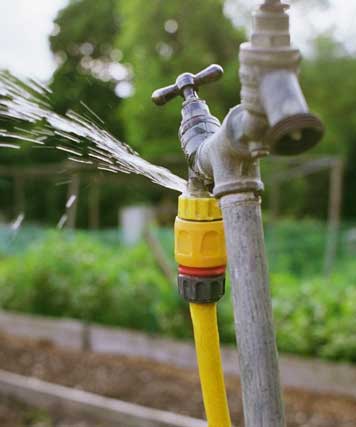Exactly how to Examine If Your Home Has a Concealed Leakage
Exactly how to Examine If Your Home Has a Concealed Leakage
Blog Article
We've encountered the article about Detecting hidden plumbing leaks directly below on the net and concluded it made perfect sense to relate it with you here.

Early detection of leaking water lines can minimize a potential catastrophe. Some small water leakages may not be visible.
1. Examine the Water Meter
Inspecting it is a guaranteed means that assists you find leakages. If it moves, that suggests a fast-moving leakage. This means you may have a sluggish leakage that might also be underground.
2. Examine Water Usage
If you detect abrupt changes, in spite of your intake being the very same, it means that you have leaks in your plumbing system. A sudden spike in your costs shows a fast-moving leak.
Meanwhile, a steady rise on a monthly basis, even with the same practices, shows you have a slow-moving leak that's additionally slowly rising. Call a plumber to extensively examine your home, particularly if you really feel a warm location on your floor with piping underneath.
3. Do a Food Coloring Examination
When it comes to water intake, 30% comes from commodes. If the color somehow infiltrates your dish throughout that time without flushing, there's a leak between the tank and also dish.
4. Asses Exterior Lines
Don't fail to remember to check your outside water lines too. Should water leak out of the link, you have a loose rubber gasket. One little leak can squander tons of water as well as increase your water bill.
5. Check and Assess the Scenario
Home owners ought to make it a behavior to examine under the sink counters and also even inside cupboards for any bad odor or mold growth. These 2 red flags show a leakage so prompt attention is called for. Doing regular examinations, even bi-annually, can conserve you from a significant problem.
Inspect for discolorations as well as compromising as a lot of devices and also pipelines have a life expectancy. If you suspect dripping water lines in your plumbing system, don't wait for it to rise.
Early detection of leaking water lines can alleviate a prospective calamity. Some little water leakages might not be visible. Inspecting it is a surefire way that assists you find leaks. One little leakage can squander tons of water as well as surge your water expense.
If you suspect leaking water lines in your plumbing system, don't wait for it to rise.
5 Signs that Your Home Has a Hidden Leak
Your water bill is unusually high without explanation
Generally, your water bill tends to stay consistent throughout the year as long as the same number of people live in your household year round. The bill might be higher during certain times of the year, such as summer, when your lawn may require more watering than it does in cooler months. However, if you notice a rise in your water bill that you can’t explain, it’s an indicator that there’s a hidden leak somewhere in your home.
You hear running water
One of the biggest signs that you have a water leak is the sound of rushing water when no plumbing fixtures are on and when no water-using appliances are running. If you hear running water in your walls when no water is being used anywhere in your home, locate your home’s main water shut-off valve, shut off your water supply, and contact a plumber at once.
Your home smells musty
Hidden leaks often occur in dark spaces, such as behind walls or under carpeting. Incidentally, darkness and moisture can create an ideal breeding environment for mold or mildew. If you start to smell mildew or the scent of rotting wood or stagnant water around your home, it’s a fair bet that a leak is the culprit.
You find wet spots around your home
The wet spots usually show up as moist areas in your carpeting. If your home has a basement level, puddles on the floor could indicate a slab leak. Outside, unexplainable puddles or lush, green patches in your yard often mean that there’s a leak in your sewer line or main water line.
You have stains, bubbles, or condensation on your walls/ceiling
Stains or condensation on your walls or ceiling are both major signs of a hidden leak. Also, drywall (AKA. sheetrock) is very absorbent, and as it takes on more water from a leak behind a wall, it will start to bubble, swell, or warp. If you see this happening in your home, don’t wait to contact a plumber before the water damage spreads.
https://www.ezflowplumbingaz.com/blog/2019/june/5-signs-that-your-home-has-a-hidden-leak/

Hopefully you enjoyed our piece on Leaking water lines. Thanks a ton for taking time to browse our short article. Liked our write up? Please share it. Let another person locate it. We recognize the value of reading our article about Locating water leaks.
Report this page